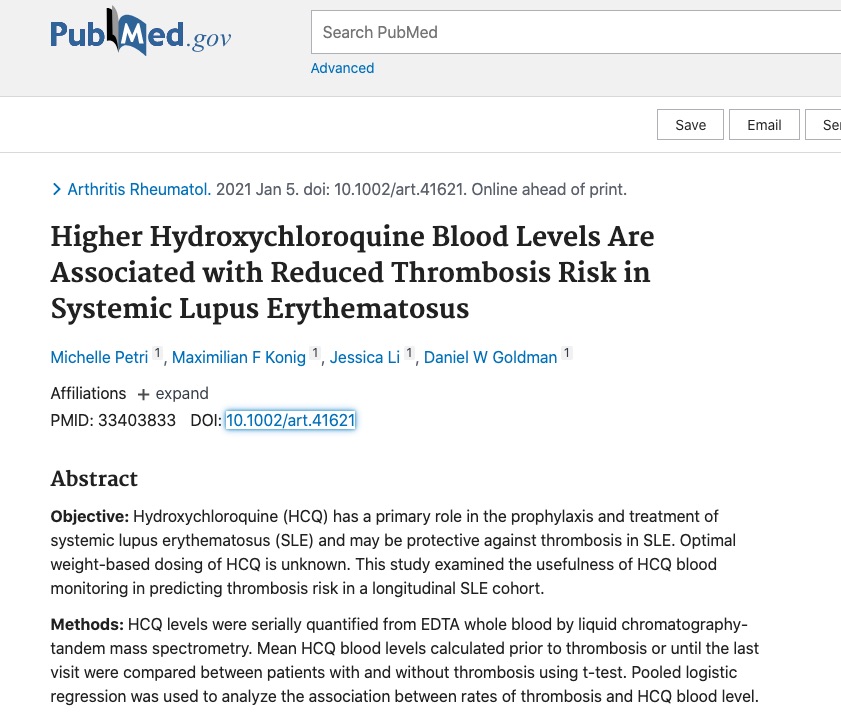Source: PubMed
Petri M, Konig MF, Li J, Goldman DW. Higher Hydroxychloroquine Blood Levels Are Associated with Reduced Thrombosis Risk in Systemic Lupus Erythematosus. Arthritis Rheumatol. 2021 Jan 5.
doi: 10.1002/art.41621 Epub ahead of print. PMID: 33403833.
Abstract
Objective
Hydroxychloroquine (HCQ) has a primary role in the prophylaxis and treatment of systemic lupus erythematosus (SLE) and may be protective against thrombosis in SLE. Optimal weight‐based dosing of HCQ is unknown. This study examined the usefulness of HCQ blood monitoring in predicting thrombosis risk in a longitudinal SLE cohort.
Methods
HCQ levels were serially quantified from EDTA whole blood by liquid chromatography‐tandem mass spectrometry. Mean HCQ blood levels calculated prior to thrombosis or until the last visit were compared between patients with and without thrombosis using t‐test. Pooled logistic regression was used to analyze the association between rates of thrombosis and HCQ blood level.
Results
In 739 patients with SLE, thrombosis occurred in 38 patients (5.1%). Mean HCQ blood level was lower in patients who developed thrombosis vs without thrombosis (720±489 vs 935±580, p=0.025). Thrombosis rates were reduced by 12% for every 200 ng/mL increase in the most recent HCQ blood level (0.87 [0.78, 0.98], p=0.025) and by 13% for mean HCQ blood level (rate ratio 0.87 [0.76,1.00], p=0.056). Thrombotic events were reduced by 69% in patients with mean HCQ blood levels >1068 ng/mL vs <648 ng/mL (0.31 [0.11, 0.86], p=0.024). This remained significant after adjustment for confounders (0.34 [0.12, 0.94], p=0.037).
Conclusion
Low HCQ blood levels are associated with thrombotic events in SLE. Longitudinal measurement of HCQ levels may allow for personalized HCQ dosing strategies. Recommendations for empirical dose reduction may reduce or eliminate the benefits of HCQ in this high‐risk population.
Related: Adherence to Hydroxychloroquine Lowers Lupus Mortality
Hydroxychloroquine shows potential to target autoinflammatory component of CPRS

